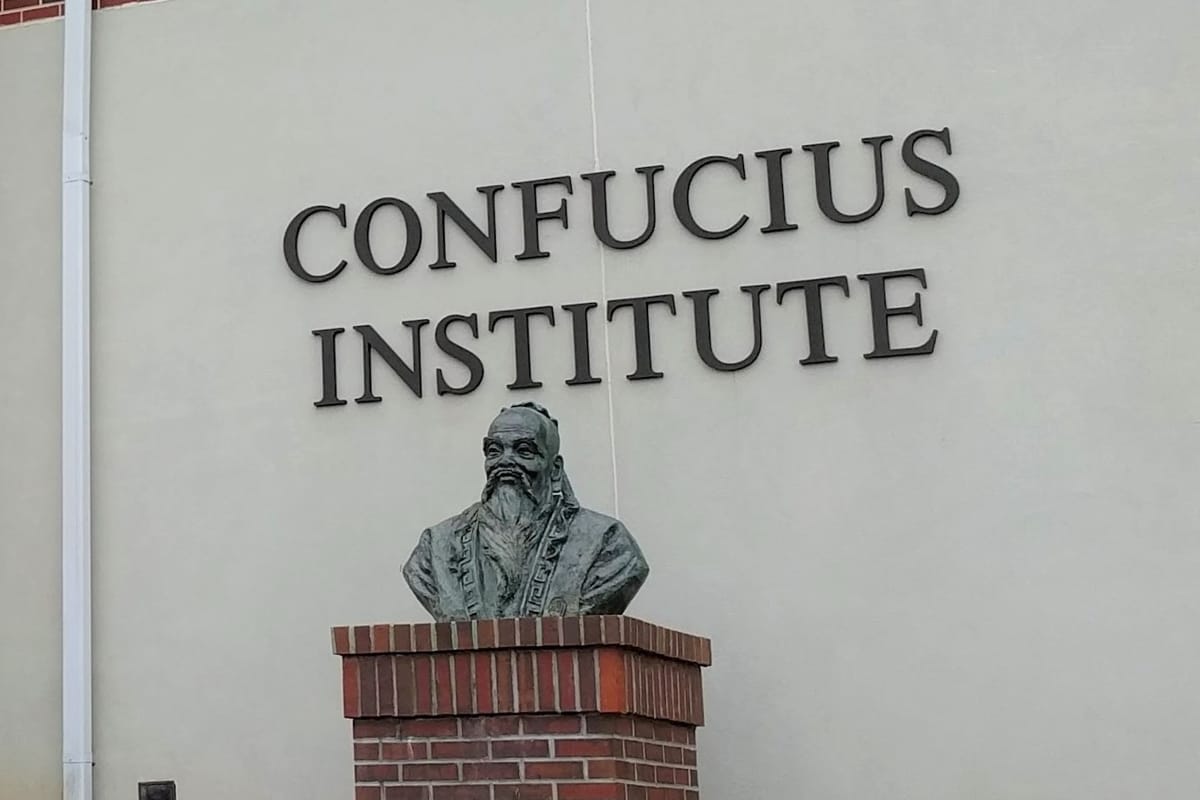

Protecting American Education from Foreign Influence
On May 7, the U.S. House of Representatives took a significant step to safeguard American higher education from foreign interference by passing HR 881, titled 'DHS Restrictions on Confucius Institutes and Chinese Entities of Concern.' This bipartisan legislation, approved by a vote of 266-153, prohibits the Department of Homeland Security from awarding grants to colleges and universities that maintain partnerships with entities linked to China's ruling Chinese Communist Party (CCP). Every Republican present supported the bill, joined by 55 Democrats, reflecting a shared concern over the potential risks posed by these affiliations.
Concerns Over Confucius Institutes and CCP Propaganda
At the heart of the legislation are Confucius Institutes, Beijing-backed programs that operate on university campuses across the United States and other countries. Critics have long warned that these centers, while presented as cultural and language initiatives, often serve as tools for spreading CCP propaganda and enforcing censorship. The institutes have been accused of influencing academic discourse and limiting free speech by promoting narratives favorable to the Chinese government.
The bill specifically targets partnerships with 'Chinese entities of concern,' a category that includes organizations directly tied to the CCP. Lawmakers argue that such relationships could compromise the integrity of American education and expose students to biased perspectives under the guise of cultural exchange.
Strong Support from Key Lawmakers
The passage of HR 881 underscores a growing consensus in Congress about the need to address foreign influence in academia. Representative Michelle Steel, a key supporter of the bill, emphasized the importance of protecting American students from external manipulation. 'We cannot allow the Chinese Communist Party to infiltrate our education system and push their propaganda on our students,' Steel stated, highlighting the urgency of the measure.
Similarly, Representative Greg Murphy, who co-sponsored the legislation, pointed out the risks associated with accepting funding or partnerships from entities tied to adversarial governments. 'Colleges and universities should not be in the business of partnering with regimes that seek to undermine our values,' Murphy said, reinforcing the bill's intent to preserve academic freedom and national security.
Broader Implications for National Security
The legislation comes amid heightened scrutiny of China's role in various sectors of American life, particularly in education and technology. Lawmakers on both sides of the aisle have expressed concerns that partnerships with CCP-linked entities could lead to the theft of intellectual property or the exploitation of sensitive research conducted at U.S. institutions. By restricting DHS grants to schools with such ties, HR 881 aims to incentivize universities to sever problematic relationships and prioritize national interests.
This bill is part of a larger effort to counter foreign influence operations that could undermine American sovereignty. Supporters argue that it sends a clear message: the United States will not tolerate external attempts to shape its educational environment or compromise its values.
Next Steps for the Legislation
With the House's approval, HR 881 now moves to the Senate for consideration. If passed, it would mark a significant policy shift in how federal funding is allocated to higher education institutions with international partnerships. The bipartisan support in the House suggests a strong likelihood of continued momentum, though the Senate's response remains to be seen.
The debate surrounding this bill also raises broader questions about balancing academic collaboration with national security. As universities navigate complex global relationships, the outcome of this legislation could set a precedent for how the U.S. addresses similar challenges in the future.
Dues are $12 per year. Member benefits:
✅ Ad-Free Website Viewing
✅ Advocacy for Republican Seniors
✅ 120+ Senior Discounts
✅ Member Only Newsletters